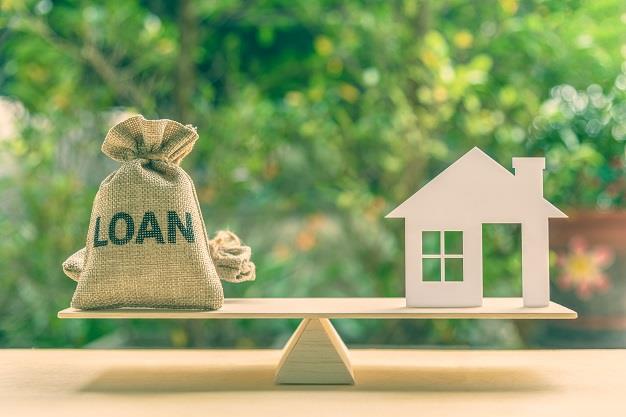Homeowners searching for ways to budget as the cost of living increases could make big savings by cutting the cost of their mortgage. Grosvenor Wealth Management’s Mortgage Adviser, Alan Ramsden, offers suggestions for how you can reduce your repayments.

Households are facing enormous pressure when it comes to their finances. Alongside soaring energy costs and rising inflation, homeowners are also grappling with increasing interest rates which can have big implications for monthly mortgage repayments.
GWM estimate since December 2021 homeowners on a standard variable rate could be paying an extra £656.04 per year on their mortgage due to the shifts in interest rates. As finances are undoubtedly facing a tough climate, now is the perfect time to look at how you can save on your mortgage.
Remortgaging
For anyone approaching the end of their current deal, remortgaging should be your first port of call when it comes to ways to cut household costs. It’s best to take advantage of the current deals sooner rather than later while rates are lower.
Research sourced from Trussle found that switching from an standard variable rate to a market-leading deal could save an average of £4,500 a year. You may have to pay an early repayment charge (ERC) to your existing lender if you remortgage, but it’s important to remember that you can remortgage six months before your deal ends.
If you’re not ready to remortgage, it is still worth getting in touch. GWM can contact you when you’re ready to go through Remortgage or Product Transfer.
Long-term fixed rates
With the financial climate looking so uncertain, fixing your monthly payments can help provide financial stability and ease the worry for many. Five year fixed rates are low compared to recent rates, or relatively competitive compared to 2 year rates.
Five-year fixed rates tend to have slightly higher interest rates than two-year fixed rates. However, committing to paying a little extra each month now could be a great relief should rates, and the price of living, continue to rise.
Green Mortgages
A green mortgage essentially rewards you for having an energy efficient home by offering you more favourable rates. Check the Energy Performance Certificate (EPC) rating of the home you are currently in or any new purchase as savings could be made here. EPC ratings of A or B are the highest and therefore qualify for the best deals. Green mortgages can offer lower mortgage rates, cashback when you take out the mortgage, or additional borrowing at lower rates.
Part and part mortgages
Some lenders offer part and part mortgages, which can be an effective way of reducing your monthly payments. As the name suggests, some of the mortgage is loaned on a repayment basis and some is interest-only.
Some mortgage advisers can fit these products to suit your needs and then make sure you have an overpayment clause to allow you to take advantage and pay off more when any extra income comes in.
Part and part mortgages are not suitable for everyone, and lenders will want evidence that you can still comfortably keep up with your monthly payments. Speak to a mortgage adviser to discuss what options could work for you.
Overpayments
While rates are still low, now could be a good time to start paying a little bit extra every month, or as a one-off, if you can. What’s more, during times of economic uncertainty, injecting more money into your home could be a safer bet than other investment opportunities.
Most mortgages allow you to overpay by up to 10% per year – check your criteria to see if this applies to your mortgage as the amount that can be saved by doing this regularly is staggering.
Overpaying by just £50 per month can knock almost two years off your mortgage and save you over £5,000 during its lifetime.
Offset Mortgages
Offset mortgages link your savings account to your mortgage – this means lenders will treat any savings you have like mortgage overpayments. You will still be able to dip into the savings you’ve chosen to offset, but this will affect the interest you pay. You will also need to have your savings and mortgage with the same provider.
Deposit Size Matters
It may be tempting, if you are a first-time buyers, to take the first deal you are offered in a bid to take that vital first step on the property ladder. However, if you are new to the market, we would advise saving as big a deposit as possible. A larger deposit will give you access to deals with lower interest rates. This means not only will your monthly payments be smaller, but you will also end up paying less over the lifetime of your mortgage.
It’s also common for young buyers to look for help within their family at this stage, with 40% of buyers stating they now need help from loved ones to purchase their own home. Ideally, a 20% deposit is a good starting point, but if a 25% deposit were to be obtainable, it’s likely that even better rates will be available to you.
Grosvenor Wealth Management’s independent mortgage advice service ensures your mortgage requirements are fully met. Whether you are looking to purchase, re-mortgage or buy an investment property, we are confident we can secure the right arrangement for you.
PLEASE NOTE: Your mortgage is a loan secured against your property. Your home may be repossessed if you do not keep up repayments on a mortgage or other loans secured on it.
Contact Form
Please complete this form if you wish to send us your questions or if you would like to request a call back.
We look forward to speaking with you.
Recent GWM articles that may be of interest
Autumn Budget Statement 2024
How could the range of changes impact your wealth planning? The Autumn Budget Statement 2024 [...]
Who pays for long-term care?
Ensure you’re well-placed to fund any future care needs Many people prefer to avoid the [...]
Smart Money January / February 2025
Smart Money January / February 2025 Welcome to the January / February 2025 edition of [...]
Understanding the rising impact of Inheritance Tax
Exploring strategies to secure your family’s financial future The amount of Inheritance Tax (IHT) paid [...]
Retirement readiness in your 50s
Now is the time to make sure you know how much you need to save [...]
Planning your path to a fulfilling retirement
Are your finances on the right track as you approach this new chapter? As we [...]







